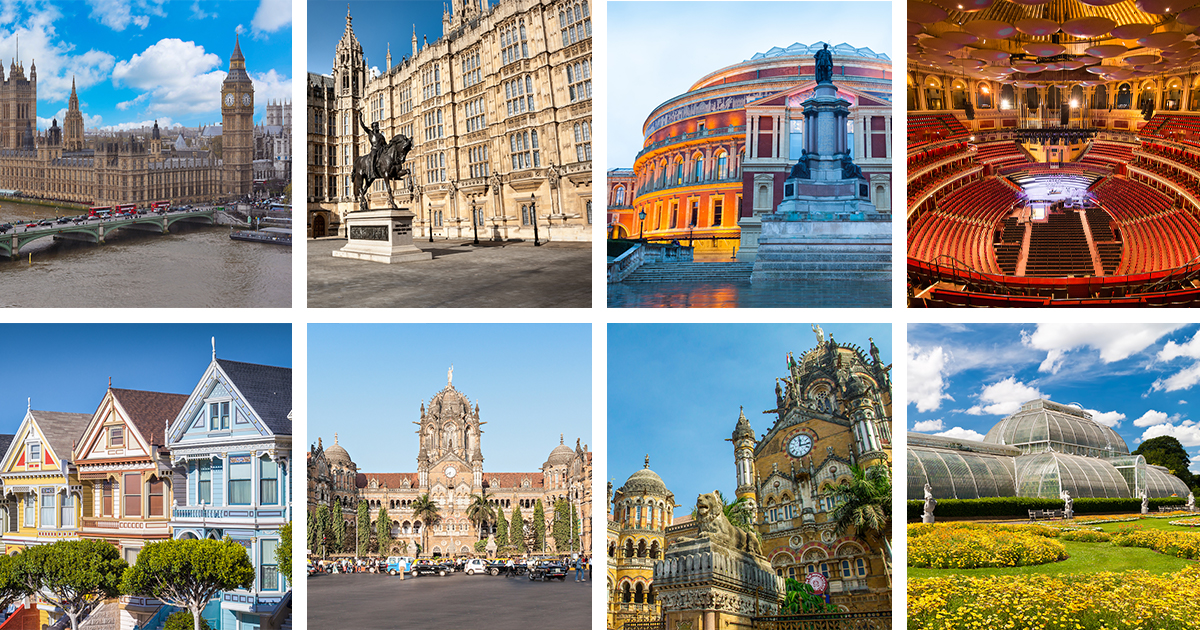
Left to right: Palace of Westminster, Old Palace Yard of Palace of Westminster, Royal Albert Music Hall, Interior of the Royal Albert Music Hall, The Painted Ladies, Chhatrapati Shivaji Terminus, Chhatrapati Shivaji Terminus Closeup, Palm House of the Kew Gardens
This post may contain affiliate links. If you make a purchase, My Modern Met may earn an affiliate commission. Please read our disclosure for more info.
Victorian architecture is defined a little differently than other styles like Art Deco architecture or Baroque architecture. It simply refers to the architecture of the Victorian era, or during the reign of Queen Victoria over the United Kingdom of Great Britain and Ireland. It is found in these countries but also in many other places around the world.
Victorian architecture also shares characteristics with Georgian aesthetics since these styles came into fashion relatively close to each other, with the Victorian period beginning right after the Georgian.
Due to the fact Victorian architecture describes a period rather than one specific style, the characteristics vary greatly by building type. In Victorian houses, common characteristics include steep rooves, gables, brick finishes, towers and turrets, and wrap-around porches.
In this article, we break down some examples of Victorian architecture across many scales and around the world.
Examples of Victorian Architecture
Palace of Westminster
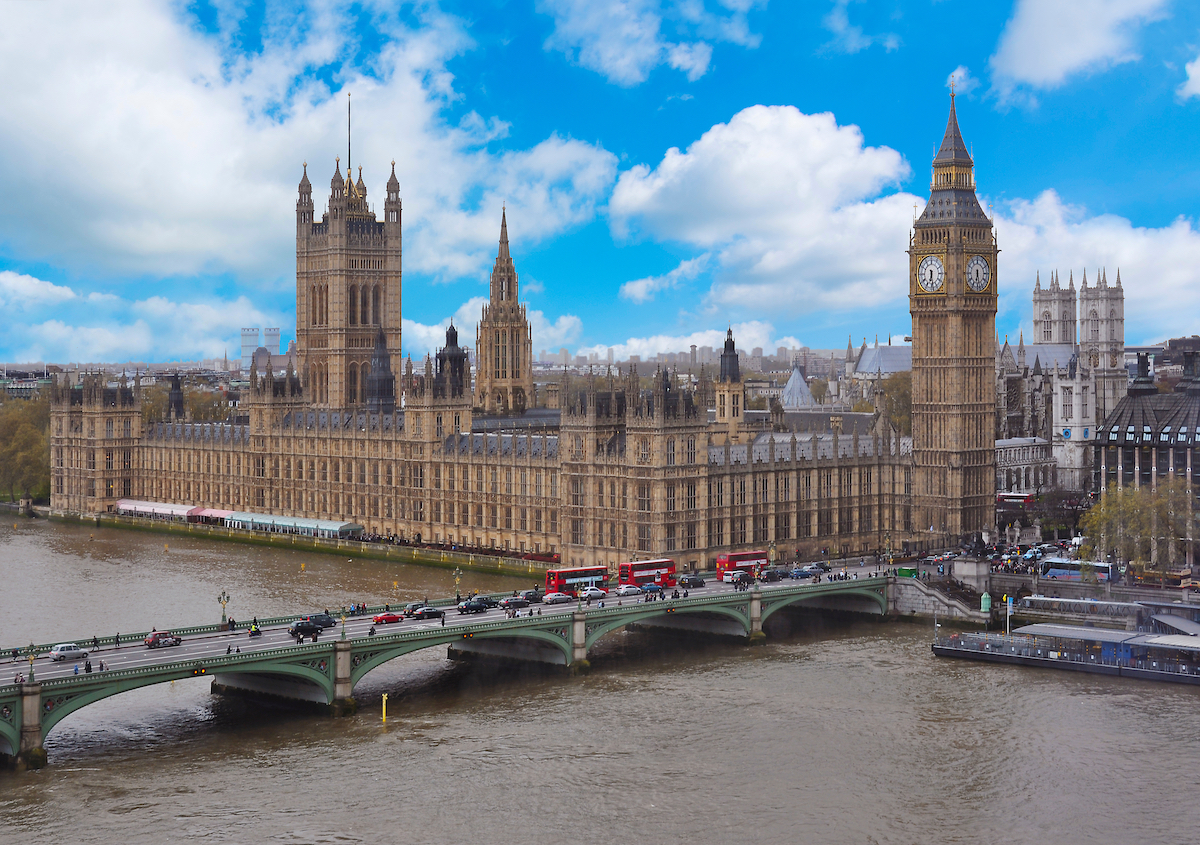
Palace of Westminster in London, England (Photo: Stock Photos from Mistervlad/Shutterstock)
Built by architects Charles Barry and Augustus Pugin, the Palace of Westminster is an important example of Victorian architecture also designed in the Gothic style. It acts as the House of Parliament of the United Kingdom and is an important and recognizable architectural symbol in the U.K. and the world. The current palace was built after multiple fires destroyed the previous royal palace and royal residences.
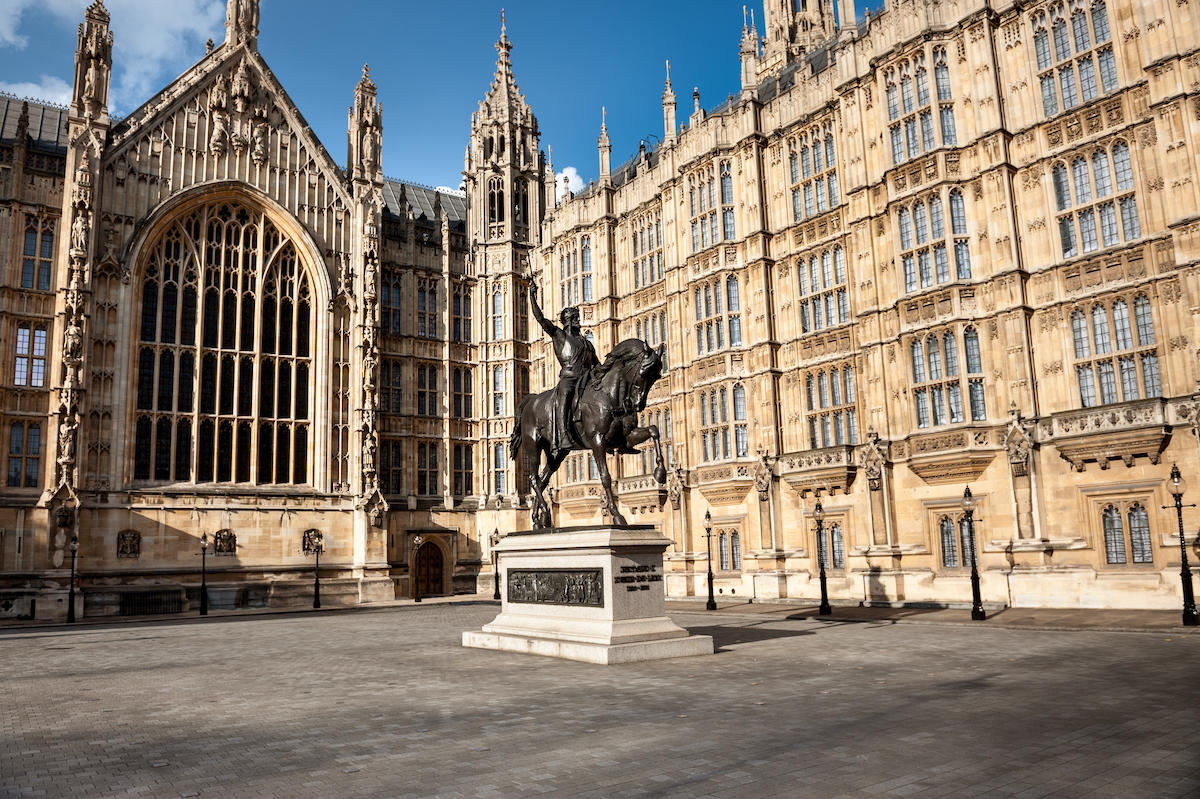
Old Palace Yard of Palace of Westminster in London, England (Photo: Stock Photos from anyaivanova/Shutterstock)
The Royal Albert Music Hall
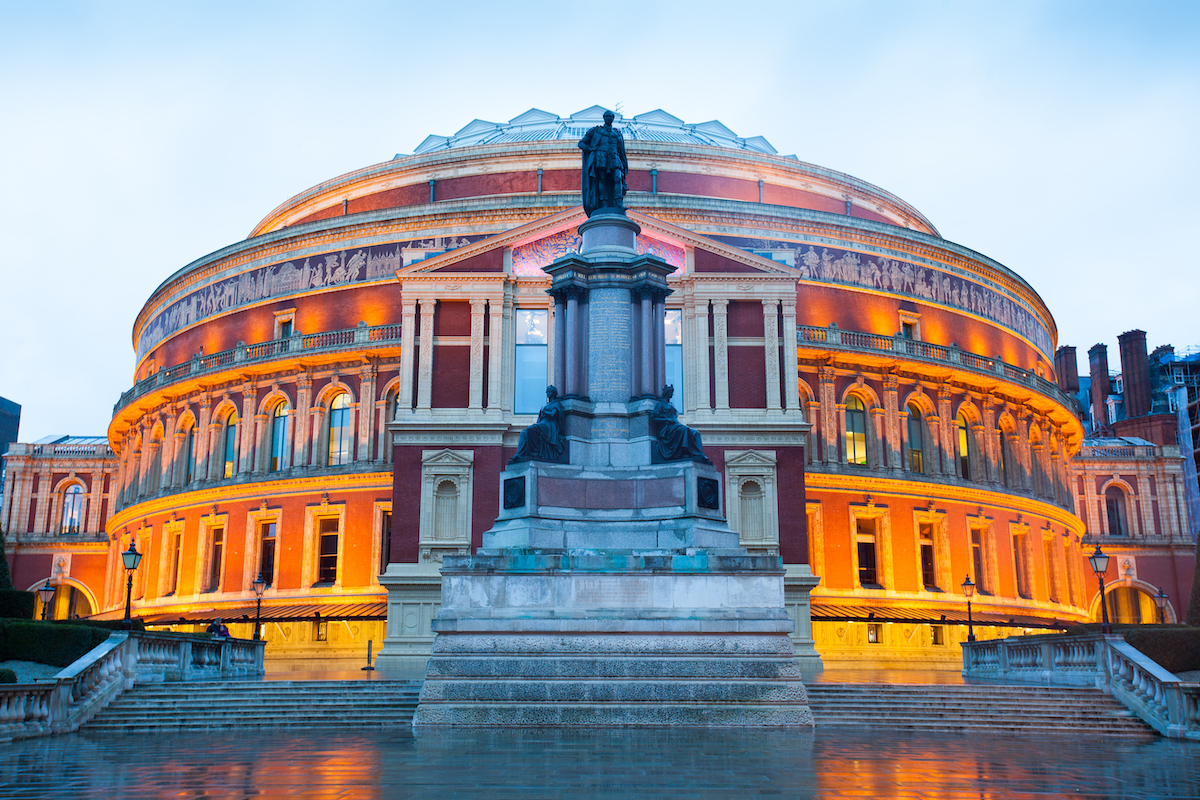
The Royal Albert Hall in London, England (Photo: Stock Photos from alice-photo/Shutterstock)
The Royal Albert Music Hall is one of the best-known buildings in the United Kingdom. It is a fitting building for this list since it was opened by Queen Victoria herself in 1871. Located in South Kensington, London, the structure is an important staple of London architecture and one of the most important examples of architecture in the U.K.
The building was named after Queen Victoria’s late husband Prince Albert. It’s designed as an ellipse in plan and is mainly constructed of Fareham Red brick with mosaic detailing that runs all around the building.
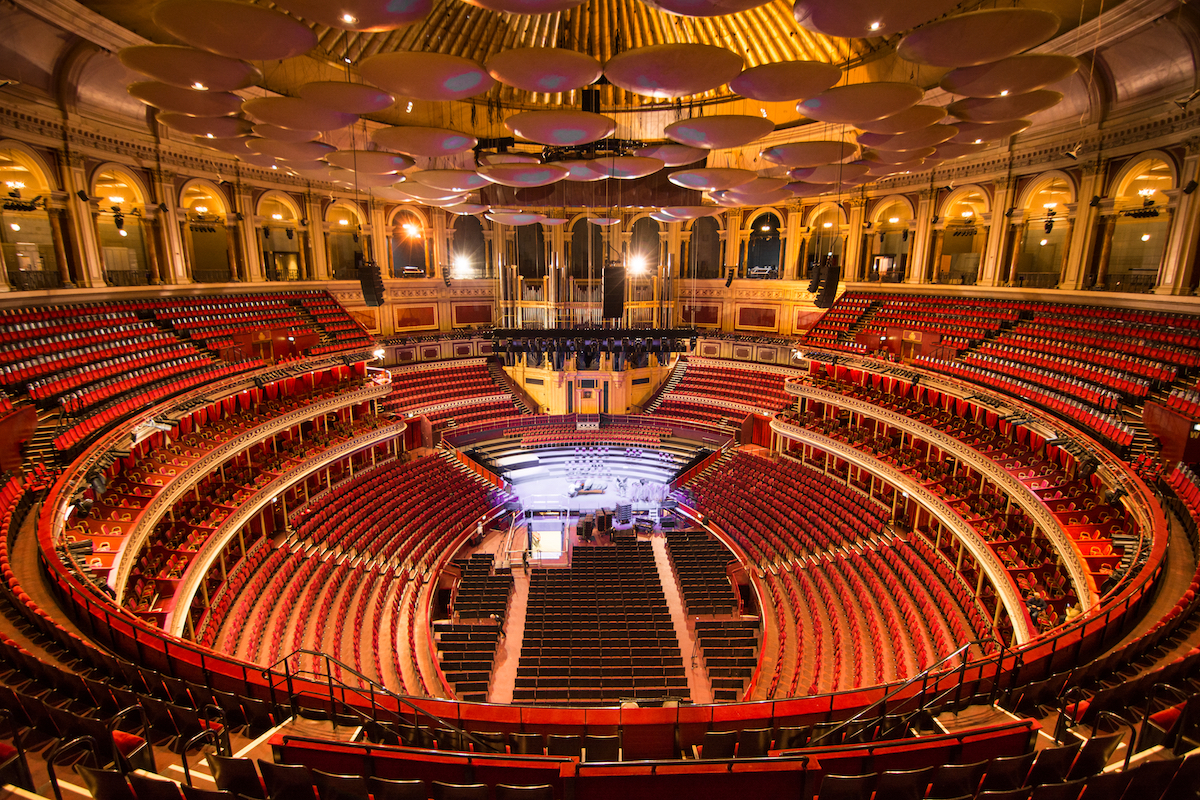
The Royal Albert Hall in London, England (Photo: Stock Photos from Willy Barton/Shutterstock)
The Painted Ladies
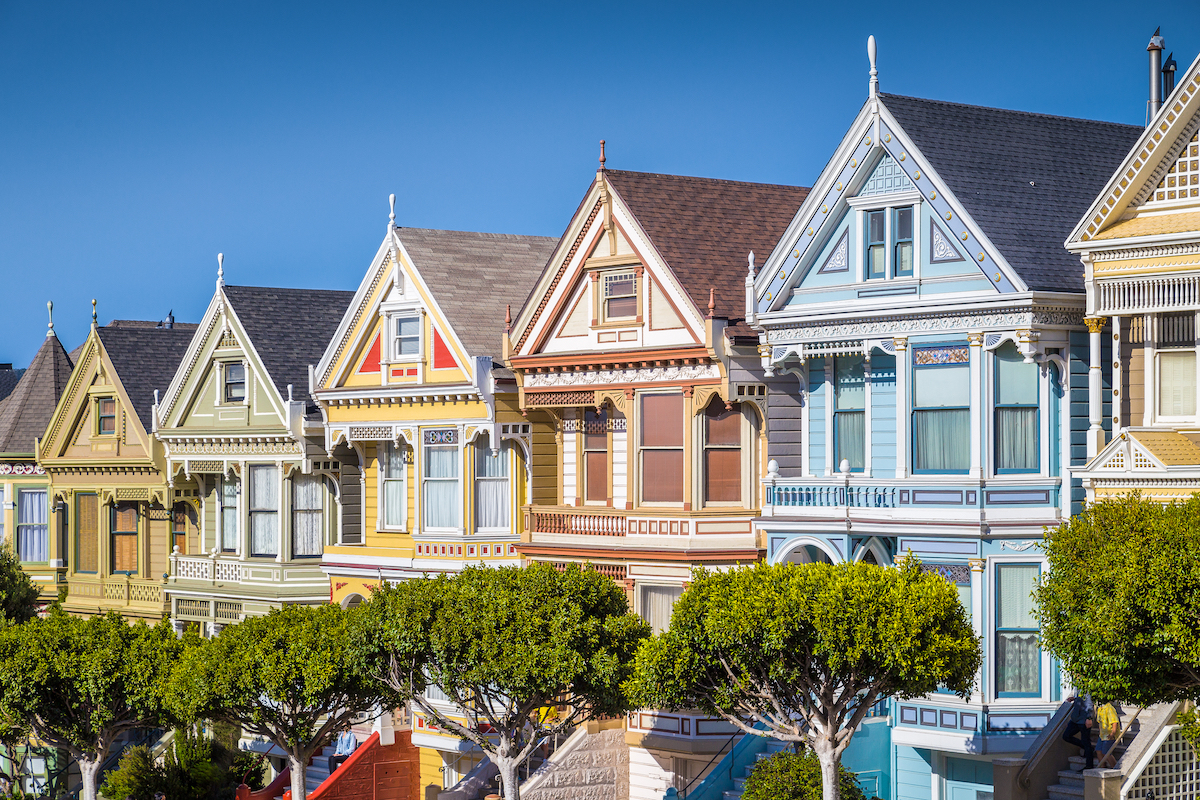
The Painted Ladies in San Francisco, California (Photo: Stock Photos from canadastock/Shutterstock)
Technically, not all of the Painted Ladies in San Francisco, California, are examples of Victorian architecture. The group of houses includes buildings in both the Victorian and Edwardian style. But what exactly are Victorian houses? It is a general term that describes the housing built under Queen Victoria to meet the demand for housing during the Industrial revolution. The characteristics of this style spread beyond the U.K., changing slightly as they were adopted in different areas.
As you might have expected after learning some of the characteristics of Victorian architecture, the bright colors were not a common feature in Victorian styles. San Francisco houses were first called Painted Ladies in a 1978 book Painted Ladies: San Francisco’s Resplendent Victorians.
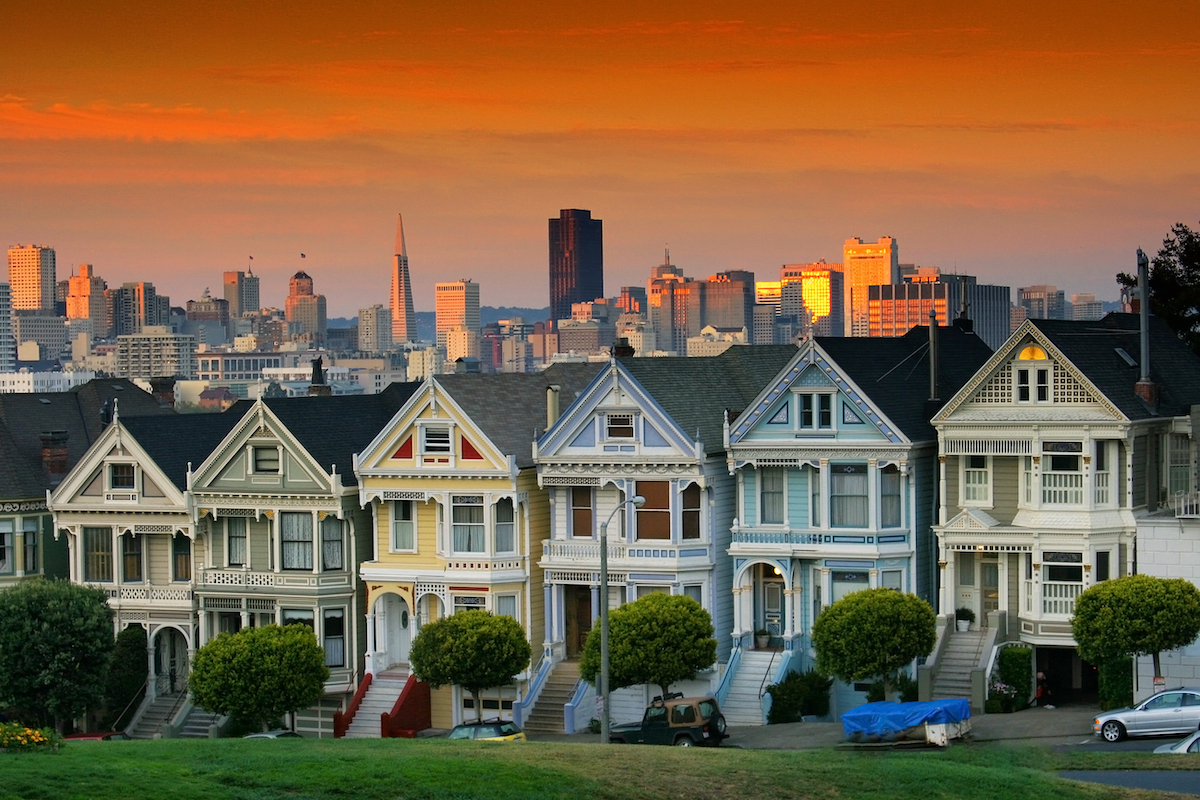
The Painted Ladies in San Francisco, California (Photo: Stock Photos from Blanscape/Shutterstock)
Chhatrapati Shivaji Terminus
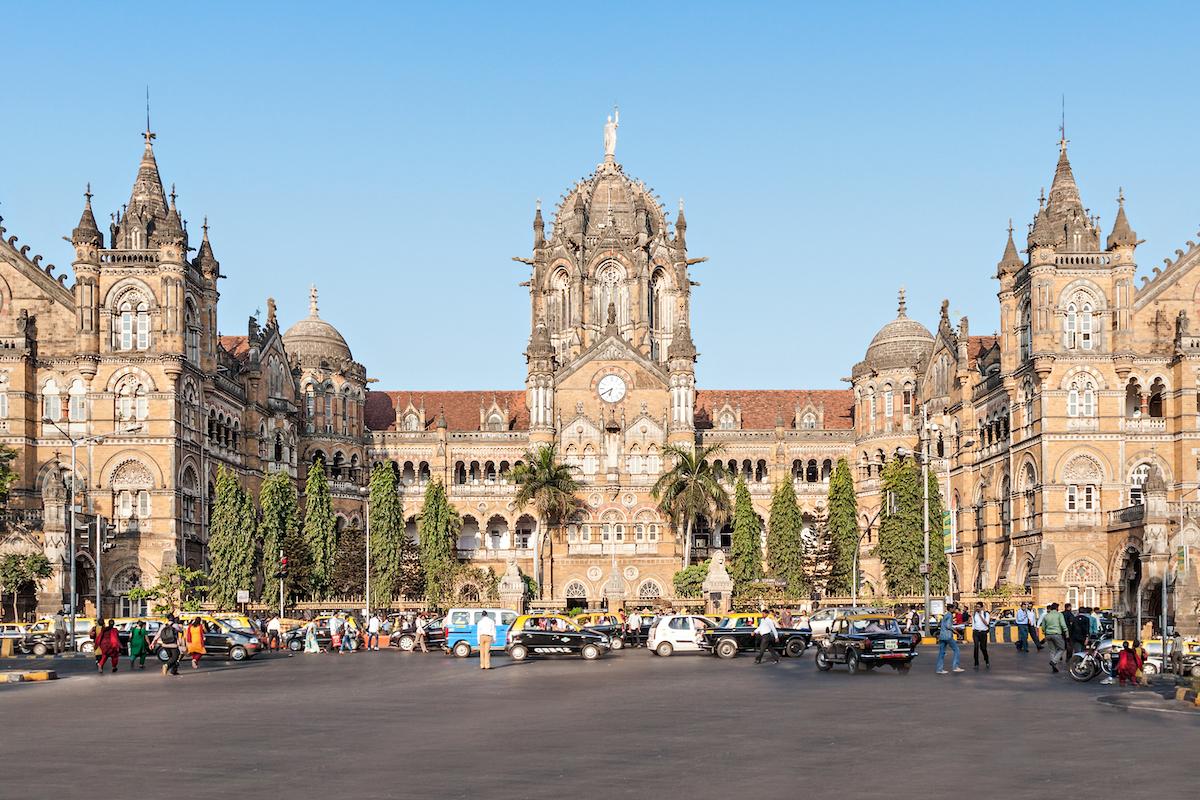
Chhatrapati Shivaji Terminus in Mumbai, India (Photo: Stock Photos from saiko3p/Shutterstock)
The Chhatrapati Shivaji Terminus is a great example of Victorian architecture—or at least partially Victorian—outside of the United Kingdom and the United States. It was originally called Victoria Terminal until it was renamed to honor warrior king Shivaji.
The station is a blend of multiple styles, including High Victorian Gothic and traditional Indian architecture. Specifically, Indian architectural elements can be found in the turrets, wood carvings, ironwork, pointed arches, and other intricate detailing throughout the project.
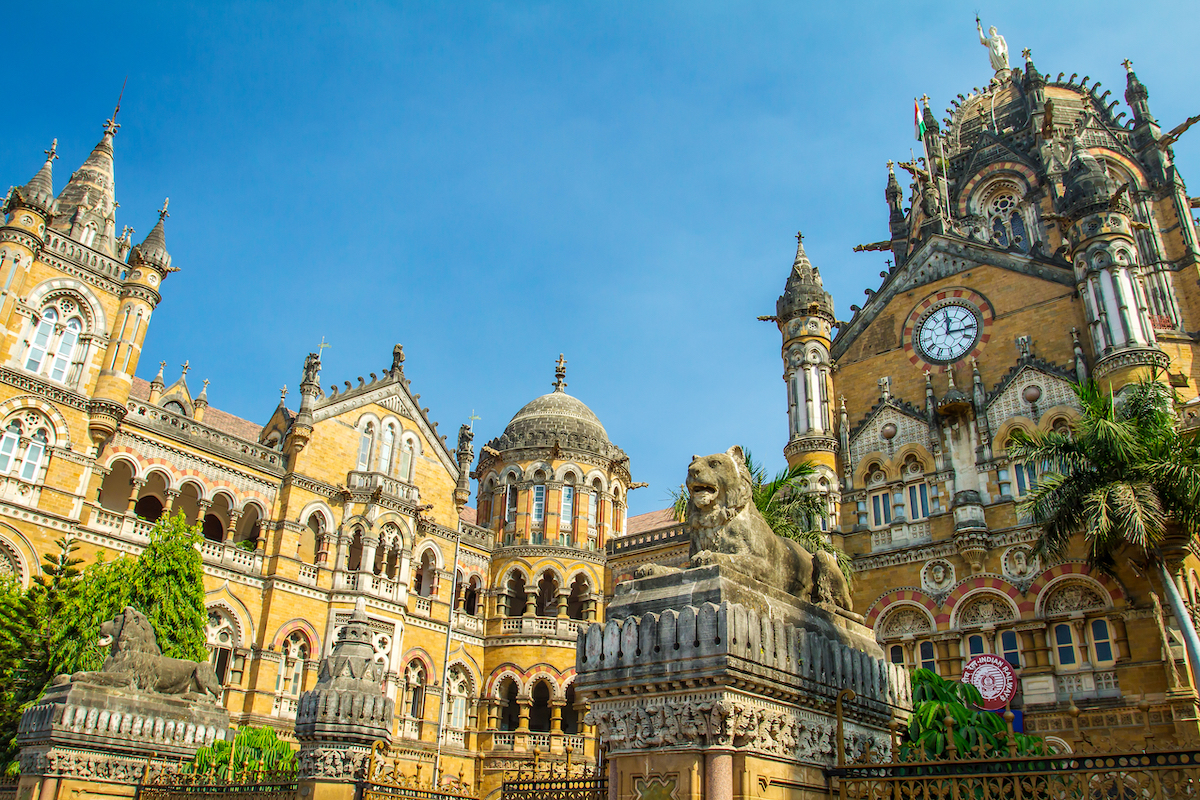
Chhatrapati Shivaji Terminus in Mumbai, India (Photo: Stock Photos from Mazur Travel/Shutterstock)
Palm House of the Kew Gardens
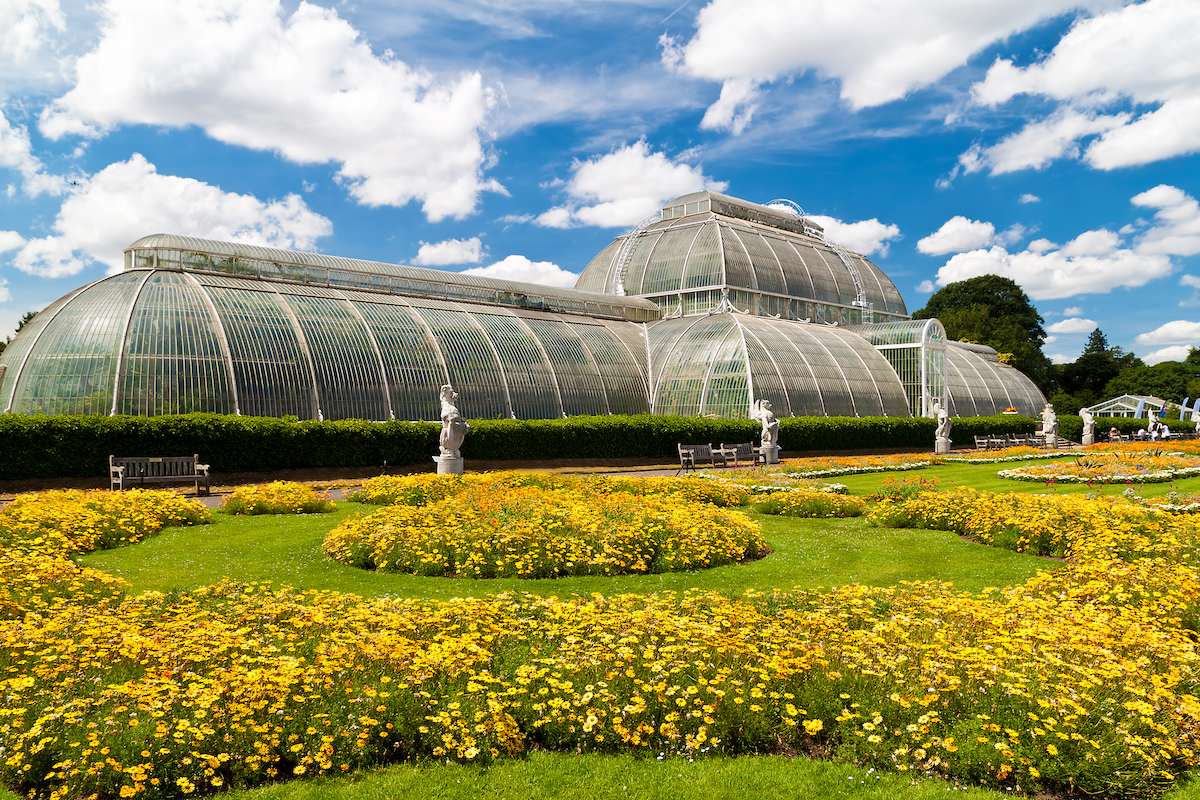
Palm House of the Kew Gardens in the Royal Botanic Gardens, Kew in London, England (Photo: Stock Photos from Kamira/Shutterstock)
This classic greenhouse is named the Palm House because it mainly houses tropical plants such as palms. Built by Richard Turner following designs by Decimus Burton, the Palm House of the Kew Gardens was constructed as a symbol of wealth in Victorian Britain. It features wrought iron used in a structural capacity with massive glass panels.
The design of the greenhouse is described as resembling the upturned hull of a ship. This is because the designers of the Palm House used the logic behind shipbuilding for the innovative new building type.
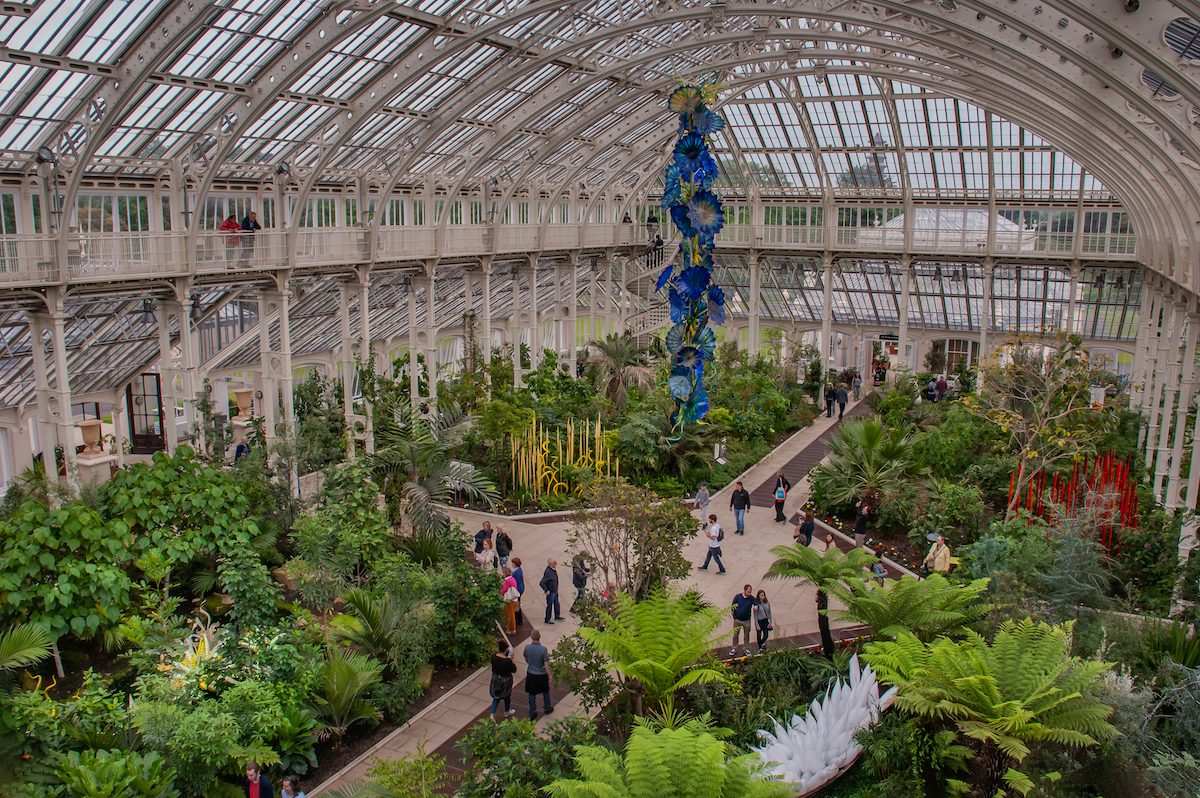
Palm House of the Kew Gardens in the Royal Botanic Gardens, Kew in London, England (Photo: Stock Photos from anutr tosirikul/Shutterstock)
